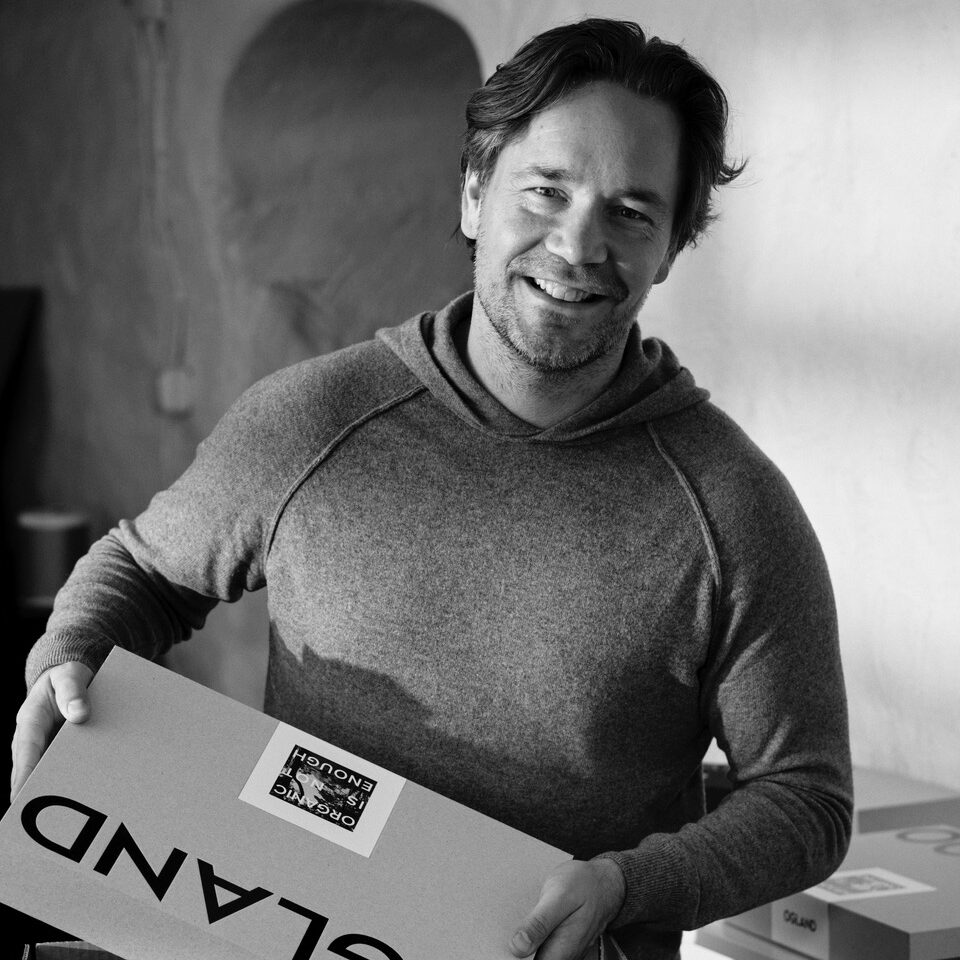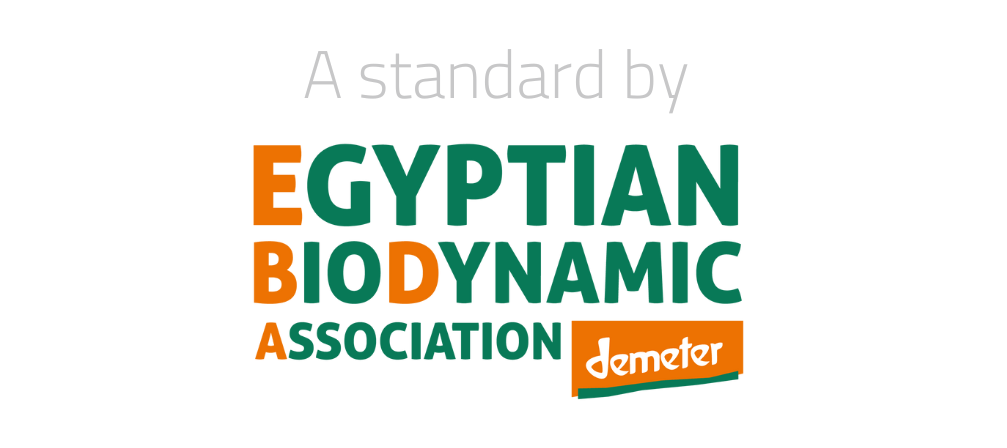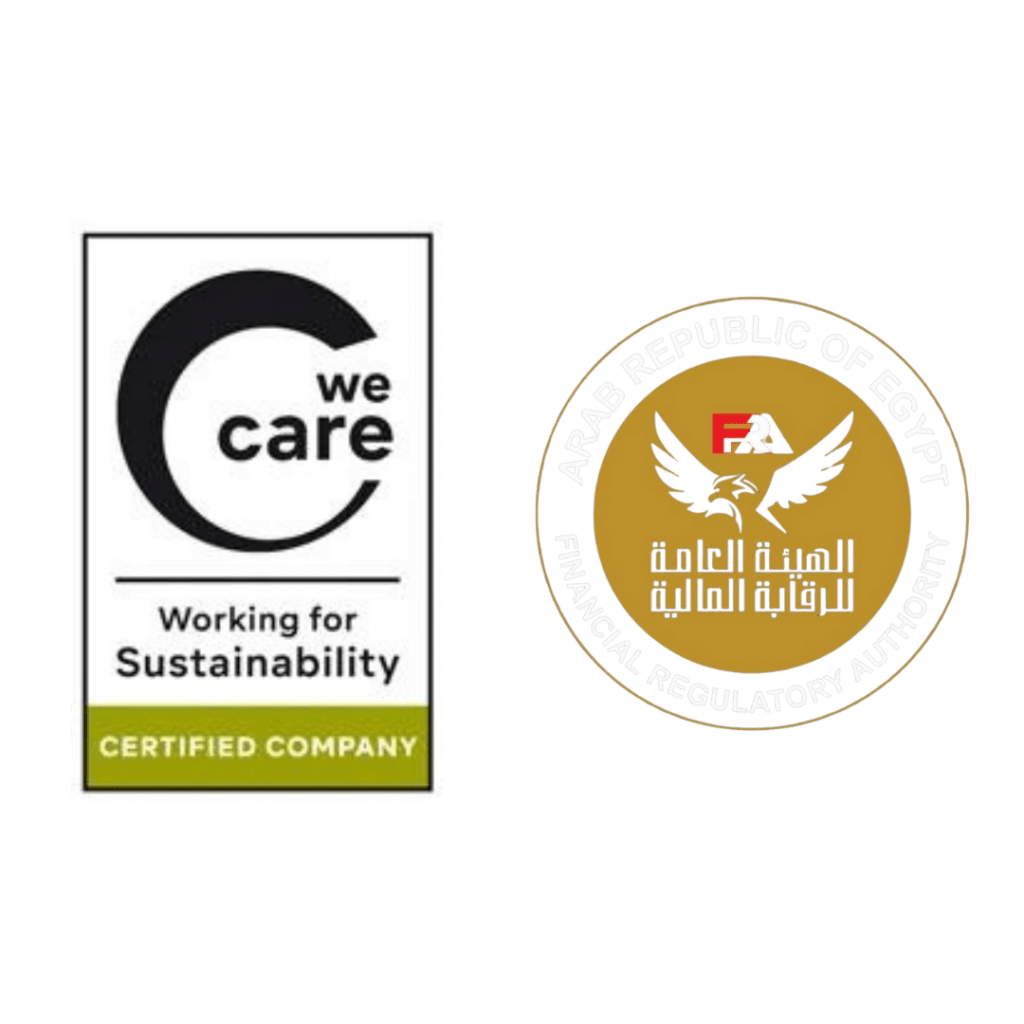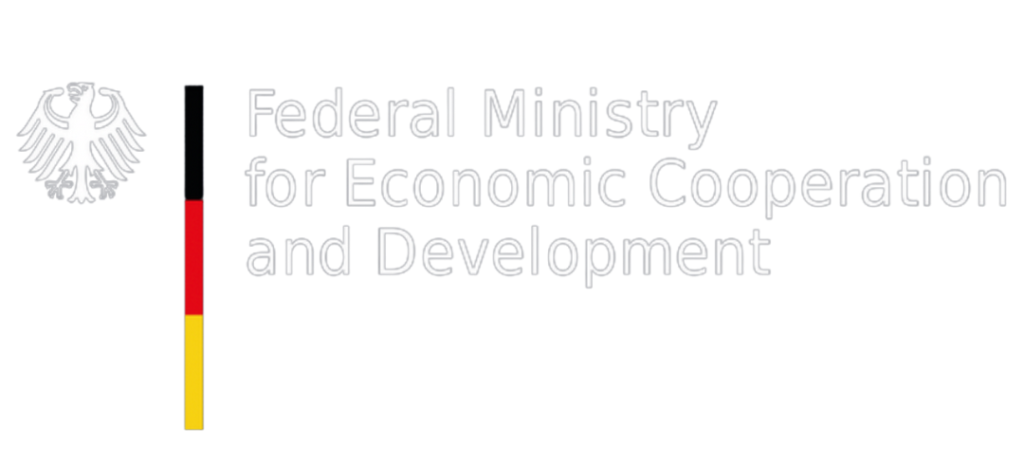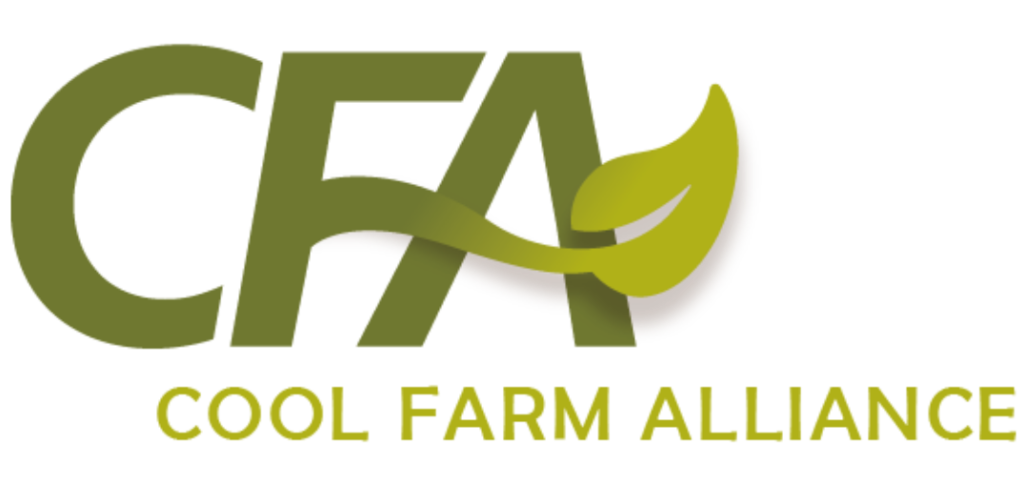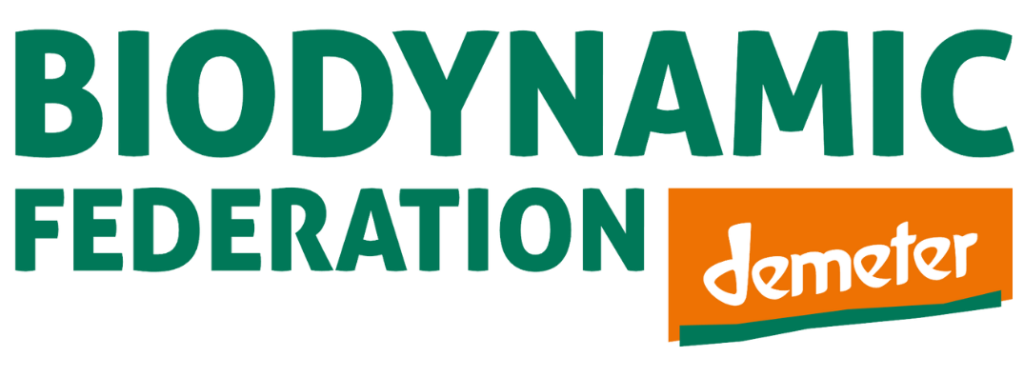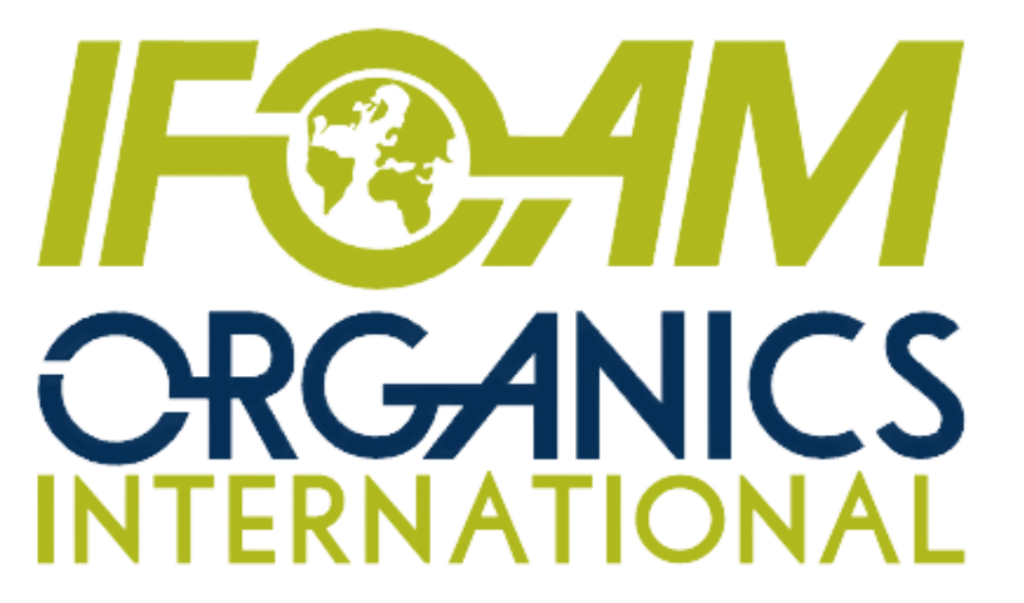Traceback your Sheet
and explore your
impact on people
& the environment

Creating a
FAIR ECONOMY
$ 1636.8
per ha is earned by the farmer to cover the farm cost and promote fair compensation.
Creating a
FAIR SOCIETY
100%
of employees who worked to produce this product work for companies that comply to the international labour standards.
Life Long Learning &
WELLBEING
10%
of the working time in NatureTex is dedicated to art and self-development activities; to promote wellbeing and
happiness at work.
Protecting the
ENVIRONMENT
42.5%
water was saved by using biodynamic, regenerative methods compared to conventional cotton cultivation.
Value Chain of the Sheet
Check out the process this sheet goes through to get to you!
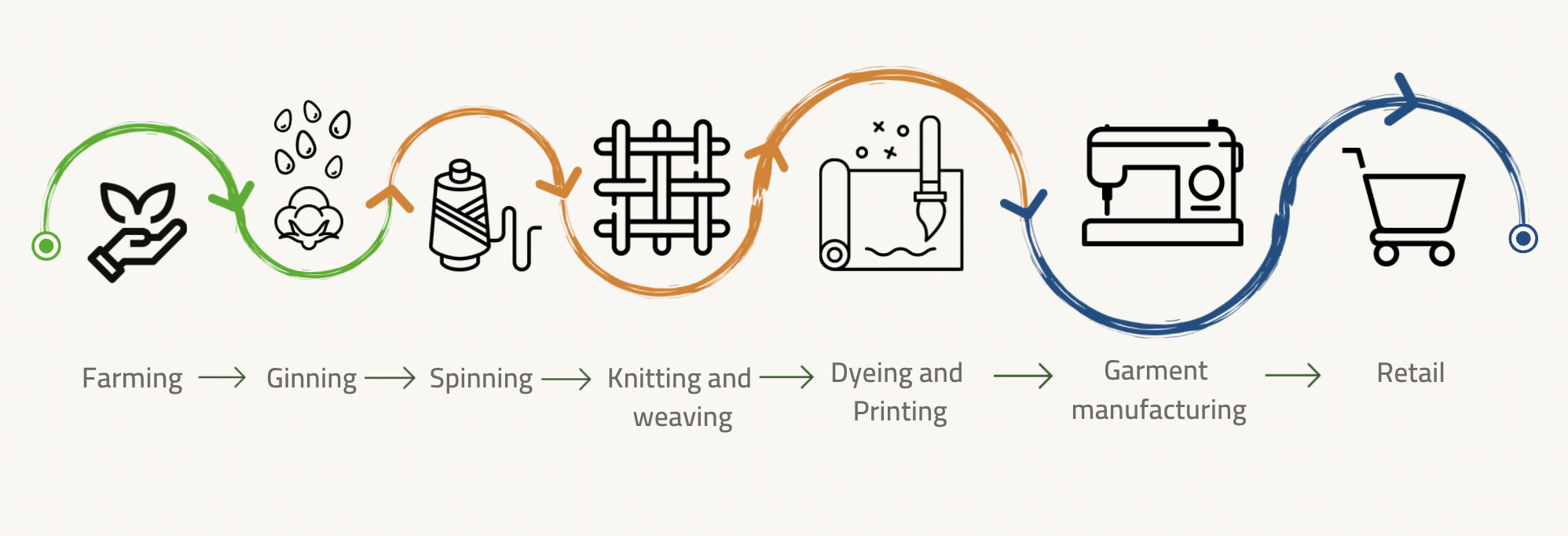
Farming
OGLAND’s Enveloped Sheets start as cotton flowers, with the variety Giza 86. This specific kind of cotton is special for Egypt and is cultivated in El-Behira Governorate in the Nile delta of Egypt. This high-quality long-staple cotton was cultivated using a holistic and regenerative approach called biodynamic agriculture.
During the cultivation of the cotton, no synthetic pesticide or fertilizer was used. This way, the farmer preserves the biodiversity of the soil and surrounding and protects the water and air from pollution.
EoL certified cotton is sold at a higher price to ensure that the farmers’ economic situation improves and farmers become more self-sufficient and support the development of their community.
Economy of Love provides its farmers consultancy and information about regenerative, biodynamic agriculture to increase skills and knowledge about useful techniques.
Meet The Farmers
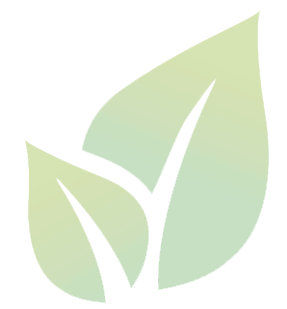
get to the source of production
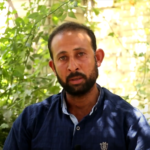
Salama Maarouf
Farmer in El Behira, Egypt
Salama Maarouf has his own Demeter- and organic certified farmland in El Behira, Egypt. He grows cotton, variety Giza 86 along with other crops. He believes that manual work blesses the yield with love and joy and that machines should not replace humans.
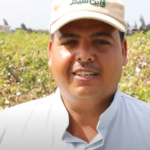
Ezzat Shahin
Farmer in El Behira, Egypt
Ezzat Tolba Shahin has his own Demeter-certified biodynamic farmland in El Behira in the Nile Delta, where he grows cotton Giza 86. He inherited the knowledge about agriculture from his grandfathers, but he seeks to innovate through biodynamic agriculture and reduce the resources.
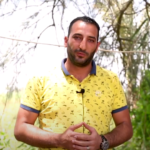
Mohamed Moghazi
Farmer in El Behira, Egypt
Mohamed Moghazi’s farm is Demeter certified and located in El Behira. Mohamed grows mainly cotton variety Giza 86. Through his way of promoting regenerative, biodynamic farming practices he was able to not only increase his profitability but also to actively increase the fertility of his land in the Nile delta.
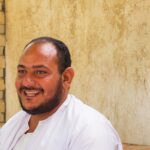
Moawad Ramadan
Farmer in El Behira, Egypt
Moawad Ramadan grows the cotton variety Giza 86 in his Demeter-certified farm. Moawad is convinced by the biodynamic agricultural principles. This way of agriculture enables him to reconnect back to nature and a healthy Earth and soil for his children and grandchildren.
Processing
(Ginning and Spinning)
Following the principle of circular farm organism, the cotton seeds are returned to the farm, where the cotton was initially cultivated, to be reused; for the upcoming season. Seeds that are not reused on the farm are used for cottonseed oil or animal fodder.
The spinning of the cotton is outsourced to a company located in Sadat city, in the northwest of Cairo.
In addition to the environmental criteria, fair treatment and well-being in the supplying companies are guaranteed through the Economy of Love Code of Conduct and the social criteria of the GOTS certification.
Processing
(Weaving, Dyeing and Finishing)
Now, to produce the fabric for the enveloped sheets, the yarn goes through a process called weaving, after which it goes on to the dyeing and finishing processes.
Dyes are often done through harmful chemicals that are bad for the skin and the environment. The Demeter and GOTS certifications ensure that the inputs being used in the processes of dying and finishing are Eco-friendly, biodegradable, and non-hazardous, with no toxins.
The dyeing facility located near Cairo abides by the most stringent legal requirements for the treatment of wastewater before its disposal.
Factory workers work in safe conditions, methods that may endanger the health and safety of the workers are prohibited.
Packing
Now that the Sheets are ready, they arrive at NatureTex factory where they do sample testing; to make sure that the quality is according to the standards. After that, the beddings are packaged, labeled then shipped overseas to OGLAND.
The NatureTex factory has implemented a Core Program for its employees which enables all factory workers to engage in courses of art, acting, music, origami, and many more to promote happiness at work.
As part of the SEKEM holding, NatureTex contributed to the plantation of 150,000 trees on the Wahat desert farm in 2020 to offset its carbon footprint.
Through its agricultural activities and tree planting, SEKEM was able to sequester more CO2 than its emissions and thus continued to be carbon positive in 2020.
Packaging Material
After NatureTex ships the Enveloped sheets, it arrives at OGLAND in Sweden. There it is packaged in boxes, ready for distribution. Although the cotton could be responsibly grown, its packaging material also has a huge impact on the products’ impact; and cannot be neglected.
OGLAND packages its products in 100% recycled, biodegradable cardboard boxes; to reduce its environmental impact.
The supplying company of the cardboard boxes is 100% FSC, PEFC, and Blue angel certified to ensure the maintenance of the regenerative capacity and biodiversity of forests.
During the shipment process, the sheets need to be temporarily packaged in recyclable plastic bags. However, OGLAND is currently committed to researching and testing for a new and more sustainable alternative.
Distribution
Now the Enveloped sheets arrive at OGLAND Sweden ready to be distributed to their different branches.
OGLAND distributes its products using climate-friendly transports, that uses electricity, biogas, and ethanol as a fossil fuel alternative.
The transportation company is on the outlook for Co2 reducing alternatives, succeeding to decrease their emissions by 30% per tonne-kilometers, and aims for a 50% decrease by 2025.
The whole transportation process, starting from the farm in Egypt until it reaches the retailer’s shelves in Sweden, is monitored to actively work on neutralizing the company’s carbon footprint.
Meet The Employees

The people who processed, packaged and distributed your product
Vivian
Merchandiser in NatureTex
Vivan has been working in the merchandising department in NatureTex for 8 years. She’s very passionate about the field and hopes to continue doing it for as long as she can.
Jing
Quality and Production Engineer
Jing has been a quality supervisor at NatureTex for 14 years. She came to Egypt from the Philippines and stayed as she grew attached to her team, who became like family to her.
Adel
Packaging and Labeling Assistant
Adel has been an employee in NatureTex for three years now. He lives in Abou Hammad and works in the packaging and labeling department.
Abou El Qasim
Administrative Affaires officer
Abo El Qasim lives in Abou Hammad. He’s been an employee in SEKEM for more than 23 years. Adou El Qasim is a trusted employee who manages administrative affairs in NatureTex.
What is the True Price?

Are there hidden costs that the price doesn't reflect?

True Price Comparision
Sustainably and ethically produced products add value to society and the environment. However, when comparing prices, we don’t take into account the long-term and externalized impact of the products we purchase.
For example, we know that this biodynamic cotton emits greenhouse gases – such as Co2-eq, costing society up to 0.042 USD/kg, and about 0.37 tonnes Co2-eq per tonne of cotton. However, compared to conventional methods, this biodynamic cotton cultivation produces 75% less Co2-eq.
We encourage you to compare products based on their true price; the price that reflects the hidden costs that we and future generations eventually pay for.


This cultivation of Cotton costs up to 0.042 USD/Kilo, by emitting carbon into the atmosphere
OGLAND is Carbon Neutral
Carbon-Neutral Throughout the Value Chain
In cooperation with the Carbon Footprint Center (CFC) at the Heliopolis University, OGLAND was able to offset their Co2-eq emissions, thus becoming carbon neutral throughout their value chain.
The CFC measured the entire carbon emissions of the supply chain, including transportation from the factory in Egypt until it reaches the warehouse of OGLAND in Sweden. When calculating the supply chain emissions for one year, with a gross weight of 1.3 tonnes, an amount of 2.5 tonnes Co2-eq is reached. In order to compensate for those emissions, OGLAND offsets its emissions by supporting the SEKEM tree project.

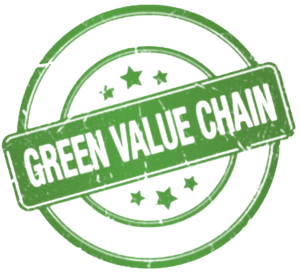
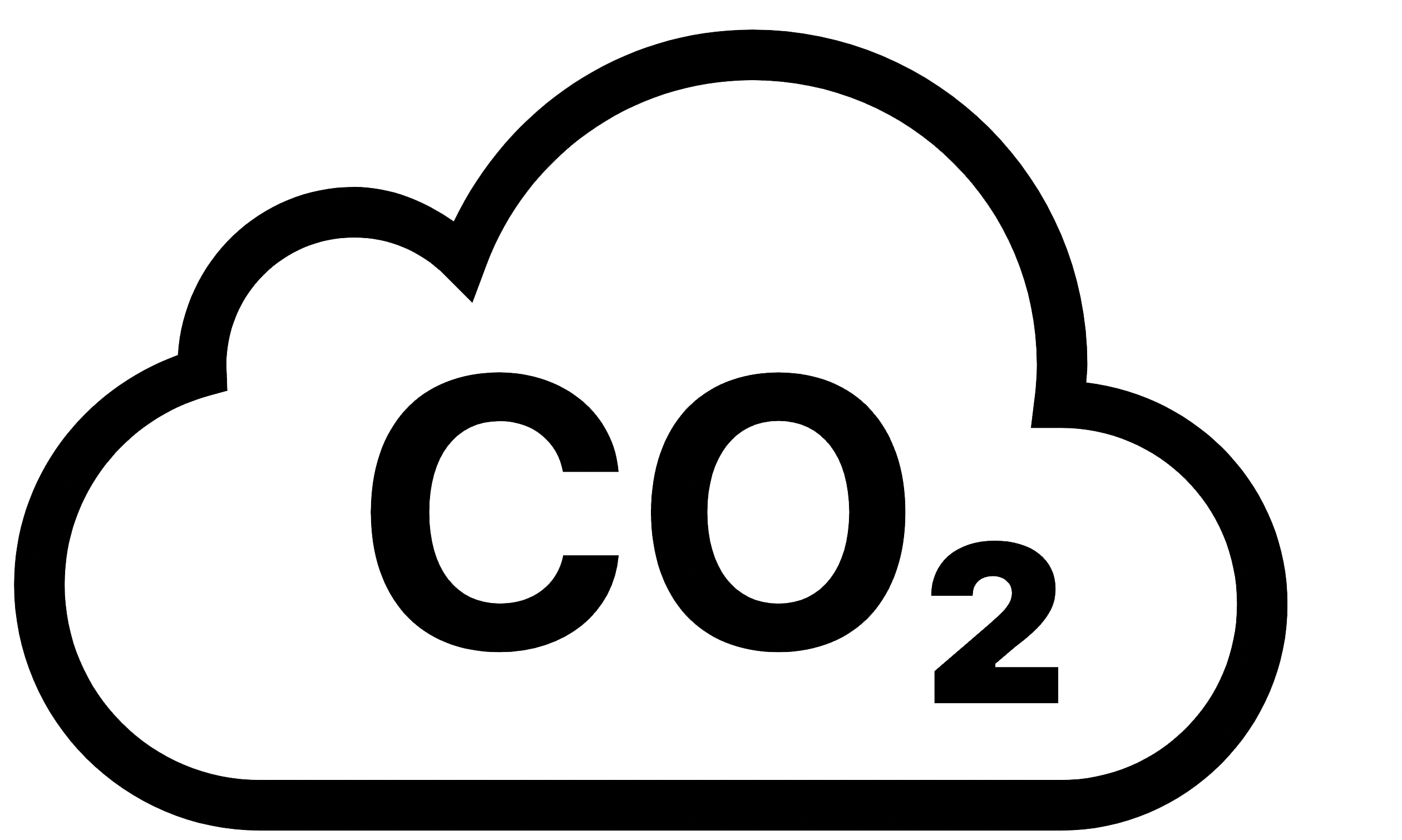
What is The Water Footprint on The Farm?
Are there hidden costs that the price doesn't reflect?

By looking at a product’s water footprint, you can assess the amount of water used throughout the production process, from the farm until it becomes fabric. That way you can make an informed decision based on the product’s impact on water resources.
2521 liter per kg was used to cultivate the raw cotton
Around 42.5% less water compared to conventional cultivation methods in the same region.
Since some countries have fewer water resources than others, it’s not only important to know how much, but also, where it comes from to appropriately measure your impact on those resources.

The Water Footprint of cultivating the
cotton for this Sheet is
1765 liters
Examples of Hidden Costs
Costs that are not reflected on the price tag, but are eventually paid by society
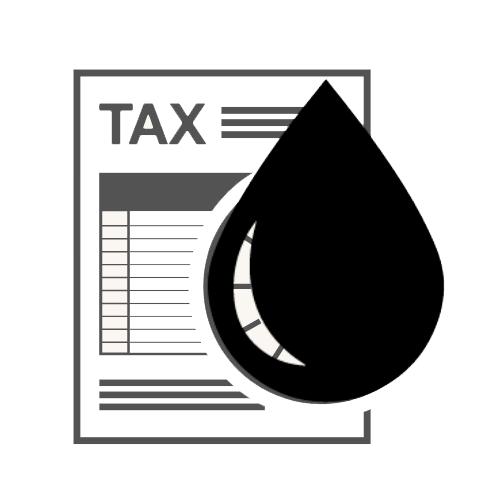
WATER
REPROCESSING COST
Society is paying taxes to clean water sources from agriculture’s chemical fertilizers, pesticides and herbicides, as well as the irresponsible disposal of wastewater from factories, in order to make it usable/drinkable water.

HEALTH COSTS
Society has to bear the long-term cost caused by disruptive agriculture e.g. soil erosion, desertification, loss of biodiversity.
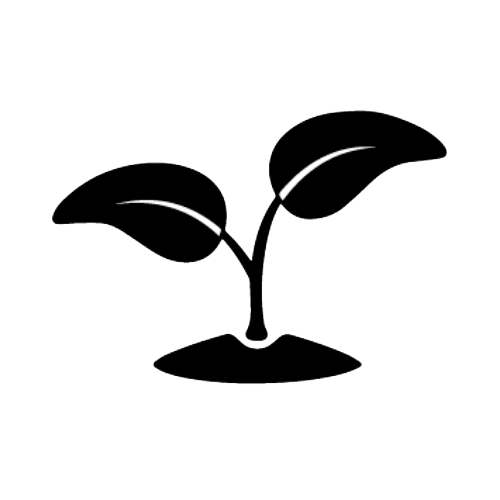
ENVIRONMENTAL
DAMAGE
Society has to bear the long-term cost caused by disruptive agriculture e.g. soil erosion, desertification, loss of biodiversity.
Locations
Check out the locations of all the farms, companies who were involved in making this product!
discover the origin of your product
Maarouf Farm
Add an optional description to your map pin economyoflove
Moghazi Farm
Add an optional description to your map pin economyoflove
Abo seda Farm
Add an optional description to your map pin economyoflove
Tolba Shahin
Add an optional description to your map pin economyoflove
We hope this information helped you Choose Your Impact!
And make mindful purchasing decisions that leave a positive impact on people and the environment
Interested to know more about the companies above? Click here to download the SEKEM Sustainability Report





